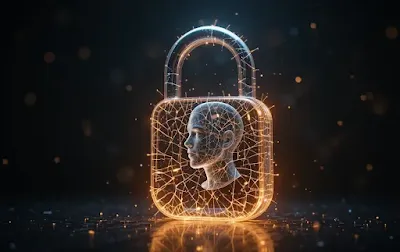From unlocking your smartphone with a glance to identifying suspects in a crowd, facial recognition technology has rapidly moved from science fiction into our daily reality. It's a technology that promises incredible efficiency and security. But as our faces become a new form of data, we stand at a critical crossroads.
At what point does this amazing progress begin to erode our fundamental right to privacy? This article will explore both sides of the coin, examining the powerful arguments for and against facial recognition to help you form a well-rounded, informed opinion on one of the most important ethical debates of our time.
The Promise: The Arguments FOR Facial Recognition
First, let's explore the positive side. Proponents argue that, when used responsibly, facial recognition can be a powerful force for good, making our society safer and our daily lives more convenient.
Enhancing Public Safety
One of the strongest arguments is its role in law enforcement. The technology can be used to scan public spaces to find wanted criminals, identify missing children in a crowd, or even help prevent potential terrorist attacks by flagging individuals on a watchlist.
Creating Seamless Convenience
Beyond security, facial recognition offers a level of frictionless convenience that is hard to ignore. It powers the instant unlock feature on your phone, speeds up airport boarding processes, and enables checkout-free payment at innovative retail stores.
The Peril: The Arguments AGAINST Facial Recognition
This is where the ethical debate intensifies. For every benefit, critics point to a potential danger that could fundamentally change the nature of our society.
The Threat of Mass Surveillance
The most cited fear is the potential for constant, pervasive surveillance. If governments or corporations can track our movements in public spaces without our consent, it could create a powerful "chilling effect" on free speech and assembly, as people may fear being monitored for attending protests or visiting certain locations.
The Danger of Algorithmic Bias
Facial recognition systems are not infallible. Studies have repeatedly shown that many algorithms are less accurate when identifying women and ethnic minorities. This bias can have devastating real-world consequences, leading to false accusations, wrongful arrests, and the reinforcement of existing societal inequalities.
The Risk of Data Breaches and Misuse
What happens if a massive database containing millions of facial scans is hacked? Unlike a password, you cannot change your face. A breach could lead to widespread identity theft, stalking, or the use of your biometric data for purposes you never agreed to.
Finding a Path Forward: The Quest for Regulation
Given the high stakes, most experts agree that this technology cannot be left unregulated. A path forward requires a new social contract. This includes demanding clear laws on how and when facial recognition can be used, ensuring transparency from organizations that deploy it, and guaranteeing individuals the right to know when their face is being analyzed and to opt out of commercial systems.
Frequently Asked Questions (FAQ)
What are the main arguments for and against facial recognition?
The main argument for it is enhanced security and convenience, such as helping law enforcement and speeding up airport check-ins. The main arguments against it are the threats to privacy through mass surveillance, the danger of algorithmic bias leading to false accusations, and the risk of data breaches.
How does bias affect facial recognition, and why is it dangerous?
Bias occurs when an algorithm is less accurate for certain demographic groups, often women and people of color. This is dangerous because it can lead to innocent people being misidentified as criminals, denied access to services, or subjected to unfair scrutiny.
Should facial recognition be banned?
This is the central debate. Some cities and activists call for an outright ban, especially on government use, arguing the risks are too high. Others argue for a moratorium or strict regulation, believing its benefits can be harnessed safely with proper oversight, transparency, and consent.
Conclusion: A Conversation We Must All Participate In
Facial recognition technology is not inherently "good" or "evil." It is an incredibly powerful tool whose impact will be determined by how we choose to use and regulate it. The debate around its future is not just for engineers and lawmakers; it's a societal conversation that requires all of us to become informed and engaged.
Understanding the technology is the first step, but understanding its implications is what truly matters.
Now that you've considered the ethics, are you ready to learn about the push for AI systems that can justify their decisions?
Explore our next article: Explainable AI (XAI): Cracking Open the AI Black Box for a Safer Future.



